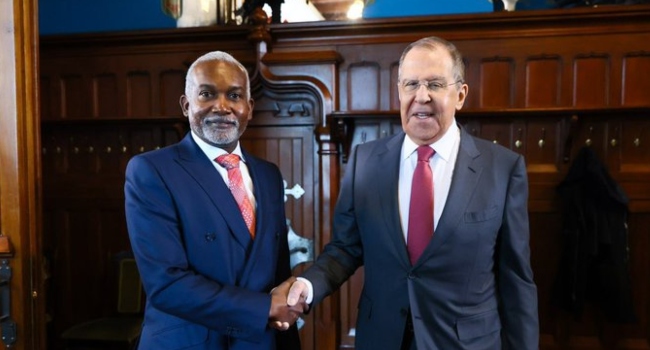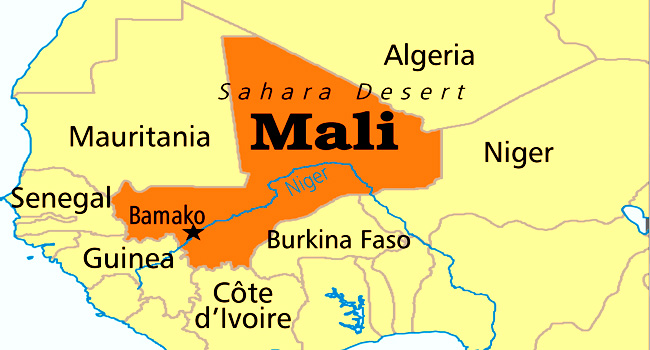
Mali’s ruling military junta has appeared unflinching so far in the face of economic sanctions imposed a month ago by the country’s West African neighbours, despite indications the measures are beginning to bite.
In response to the junta postponing promised elections following 2020’s coup, the Economic Community of West African States (ECOWAS) imposed a trade embargo and closed borders with Mali, in a move backed by France, the United States and the European Union.
ECOWAS leaders also halted financial aid and froze Mali’s assets at the Central Bank of West African States.
The measures followed a proposal from Mali’s junta to stay in power for up to five years before staging elections — despite an earlier commitment to hold a vote on February 27.
Mali’s military rulers have remained firm, and appear to enjoy popular support, despite the sanctions beginning to have an effect in one of the world’s poorest countries.
In one of the first tangible consequences of the measures, Mali defaulted on debt repayments worth more than $30 million in late January.
Many ordinary Malians also told AFP that they have seen price rises since the imposition of sanctions, even though the measures do not apply to basic necessities.
“I’m buying fewer onions and less oil, even though that’s what we cook the most,” said Mame Koita, a 46-year-old mother of four, in front of a market stall in the capital Bamako.
Swathes of Mali’s territory lie outside of government control due to a brutal jihadist insurgency that first emerged in 2012, and has long hampered economic growth.
Mariam Diakite, who launched a consumer association last year, said that the current situation for ordinary Malians is “really pitiful”.
“The sanctions add to an already existing situation,” she told AFP.
– ‘Savage measures’ –
Landlocked Mali imports about 70 percent of its food, according to the UN, meaning its trade links with the neighbouring coastal states of Senegal and Ivory Coast are crucial.
Both countries are ECOWAS members that have shut their borders to Mali.
Yet there has been little public criticism of the authorities, despite the potentially crippling effect of the sanctions.
After the Malian junta called for protests last month, large crowds across the country took to the streets to protest the sanctions.
The junta, for its part, has argued that the sanctions are illegal and illegitimate.
On Monday, Interim Prime Minister Choguel Kokalla Maiga called the sanctions “unjust and savage measures”.
He added that their purpose is to overthrow Mali’s government on behalf of “we know who” — a thinly veiled reference to former colonial power France, whose relationship with Mali has deteriorated sharply since the military takeover.
The sanctions imposed in January are the not the first applied to Mali in recent years.
In 2020, ECOWAS also imposed a trade embargo after the army deposed elected president Ibrahim Boubacar Keita.
But it lifted the measures after the junta agreed to hold an election and restore civilian rule in February 2022 — a commitment on which the junta has since reneged.
– Traders blamed for price rises –
Owing to a lack of hard figures and a reluctance among experts to talk publicly, the impact of the sanctions to date remains unclear.
But there are indications that consumer prices are beginning to rise.
The government recently capped the prices of basics such as rice, vegetable oil and sugar, for example.
And public television has carried broadcasts of government agents performing market raids to enforce the rules.
“I would like to reassure my compatriots that stocks of basic necessities are sufficient, more than sufficient,” Trade Minister Mahmoud Ould Mohamed said recently.
Many in Mali are blaming price rises on gougers.
The National Union of Workers of Mali, one of the country’s largest, recently stated that some traders are seeking to “get rich on the misfortunes of the people”.
However, Bamako wholesaler Mouhamadou Bagayoko said that he has raised prices out of commercial necessity.
“Scarcity leads to an increase in the price of raw materials, it’s not our fault, it’s everyone’s fault,” he told AFP.
One social scientist, who declined to be named because of the sensitivity of the issue, said there is little reliable data on recent inflation.
“We can only look at the external signs to understand what is going on,” he said.



